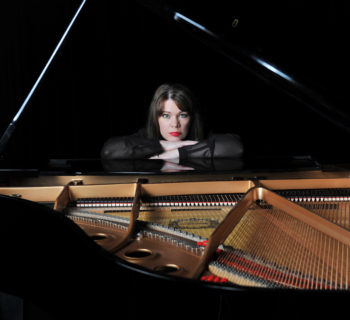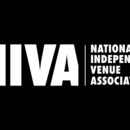Jesty Beatz is the founder of Holy Mattress Money whose experience as an independent artist has allowed him to make a full-time living off music for the past 15 years. When he isn’t busy in the studio writing and producing songs he also runs Cleveland-based record label Declared Major.
For all you creative types out there who dream of eventually making a living off your art, here is my advice to you.
Slowly at First, Then All at Once
This phrase has been used by many great literary minds to explain how great events at first take time and momentum. Think about falling asleep. First your eyelids get heavy, then your head starts nodding, and then suddenly you’re knocked out. Slowly at first, then all at once. Transitioning into a career as a full-time musician is no different. At first, you start to dedicate chunks of your day to your creativity. Then events and gigs start to dot your calendar. After a while, you’re so busy with music related events that you have no choice but to lean into it and take a leap of faith. In other words, there’s no fast track. Navigating the road to becoming a full-time creative means putting tiny cogs together along the way, taking them apart then back together, rearranging them, keeping them well-oiled, and then over time you have a big unstoppable machine. Slowly at first, then all at once.
Start Where You Are, With What You Have
Don’t quit your day job—yet. In the beginning it’s important to consider your regular job as a means to fuel your art while you pay your bills and rent. That’s normal. Use any extra money available from your regular job, and put that towards tools that improve your creative skill. Save those extra tips to buy better recording equipment. Make that overtime money to put towards some studio time. Volunteer to work during that holiday to earn more gas money for that gig. Don’t fret about not having the best equipment or resources just yet. Let them shape who you are as an artist and then slowly build your foundation up. Afterall, some of the best art is born out of limitations.
Find a Niche Audience to Dominate
This is a common adage in Marketing 101, but it applies to building an audience no matter what you’re selling. You can’t expect to reach a million people overnight, but you can reach a few hundred here, a thousand there, and so on. These are parts of the cog in your creative machine. If it feels like I’m talking a lot about marketing, it’s because getting yourself noticed is crucial in this business.
Here’s what I mean by finding a niche audience: let’s suppose you make 60’s inspired jangle pop. The obvious move here would be to find other similar artists online and try to market yourself to their audience. Where I’ve had the most success is finding where fans of my genre intersect with other markets, and advertising to them around their interests. Is there a particular craft beer that they’re into? A specific record label? A particular instrument? Find where those people meet online and then consistently share to those audiences. By starting out with a niche audience, you will then have the foundation to expand into other markets.
Get Creative With a Business Around Your Business
Throughout your music-making journey, pay close attention to the obstacles you encounter. Is it learning to be a better singer? Need help landing Spotify playlist placements? Stuck while learning how to use a new plug-in? Pay attention to the hurdles you encounter, and how you overcome them. The solution to those obstacles can easily become a source of income for you to help others who find themselves stuck.
If you’re talented with a particular instrument, you can charge for lessons. If a DAW is in high demand, and you’ve managed to teach yourself how to use it you can put yourself out there as a resource for beginners. If you’ve learned a fail-proof pitching method for music supervisors, share the wealth-- for a fee.
It’s important to recognize the businesses around your business, but also the potential businesses that exist inside your business. For instance, when I was moving cross-country to Los Angeles, I was looking for the best solution to ship some of my belongings and I found that Greyhound, the travel-by-bus company, utilized their fleet’s unused cargo space to also transport packages. If you’re creative, you can do something similar for your music business. For example: Are you eerily good at creating Facebook ads for your music? You could easily help a few people create content that converts. Boom. Instant side-hustle.
Know How to Market Yourself
Far too many musicians treat marketing as a mere exercise in repeatedly posting about their upcoming single or video. While it’s important to keep your fans in the loop of your next project, there comes a point where all those posts are just preaching to the choir. By all means give visibility to your work, but what’s even more important is outreach. Harness attention from people outside of your “choir.”
Especially in the early stages of your career, the most impactful social media posts are the ones seen by people who don’t follow you—yet. Whether it’s through YouTube, Instagram Reels, or TikTok, figure out potential ways to be exposed to new followers via their respective algorithms. At this time, these particular social media platforms suggest content to an audience expecting to see something new from people that they don’t already follow. Taking advantage of this might take some research and practice to figure out, but I guarantee that those potential followers will be more vital to getting your music out there than some random acquaintance from college that you worked on a group presentation with.
Remember that your career is a marathon, and you are running your own race. You should start now with what you have. Take what you’ve learned and earned and reinvest in you your growth as a business. While staying focused on your primary goals— look for the “hidden” opportunity to serve people who are running into obstacles that you overcame.













